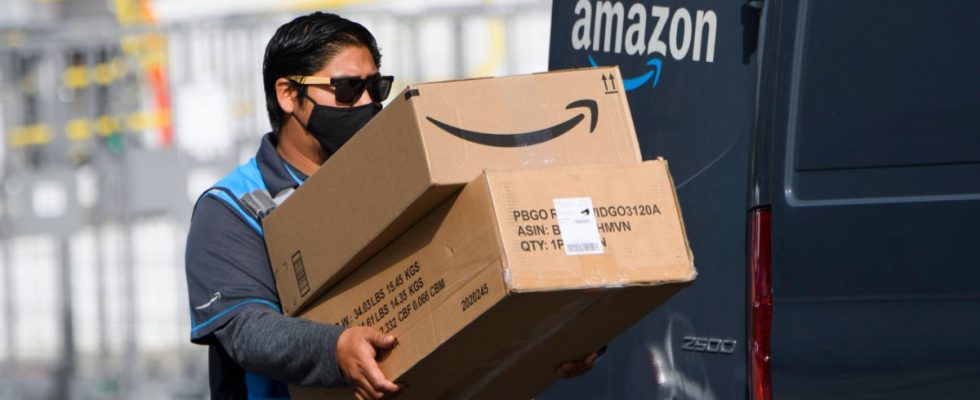Release Energy has everything it takes to be an Amazon bestseller: the name is catchy and fits an energy drink, the logo and packaging look professional. The marketing campaign was perfectly planned, fans order every minute. Twelve hours after its market launch, the hype propelled the drink to first place in the Amazon charts for the bitter lemon category – but the company has no idea what its algorithms are recommending.
The tastefully designed bottles are filled with a rather unsavory liquid: the urine of Amazon drivers. They have to deliver so many packages every day that they hardly have time for breaks. That’s why some people pee in bottles. Amazon admitted this years ago, but instead of relieving employees, they were threatened. In some locations, drivers may be terminated if bottles of urine are discovered multiple times in delivery vehicles.
That’s why some remove the telltale signs before returning vehicles at the end of the shift – by throwing the bottles out the window just before storage. This was noticed by the British reporter Oobah Butler, who had previously tried in vain to infiltrate Amazon as a driver incognito. He collected dozens of bottles, decanted the urine and thought about how he could make as many people as possible aware of the working conditions of Amazon drivers.
Urine is storming the Amazon charts
With the help of friends, he designs the fictional brand Release, lists the supposed energy drinks on Amazon and properly declares the ingredients: water, urea, creatinine, uric acid and other components of human urine. Nevertheless, Amazon classifies the product as a drink. Butler rounds up friends and acquaintances who order en masse and give positive reviews – of course without having received or even drunk a single bottle of urine.
That same evening, Release leads the Bitter Lemon category and the first orders come in, which Butler can no longer assign to his circle of friends. At that moment he stops the experiment because he has achieved what he wanted. And it shows that Amazon his self-imposed claim is not always met: “Our goal is to be the world’s most customer-oriented company and the best employer with the safest working environment.”
Butler has already made several companies look bad with his bitter pranks, but Amazon is now being hit particularly hard. In the documentation “The Great Amazon Heist” of the broadcaster Channel 4, Butler fools the company several times and outsmarts the platform’s security controls. An Amazon spokesman told the SZ that the documentary paints a very distorted picture of the company. Amazon cares about the well-being of the drivers and enjoys safety highest priority.
A four year old can buy knives
Nevertheless, Butler’s four- and six-year-old nieces were able to order dozens of knives, garden saws and rat poison via the voice assistant Alexa – without being asked about their age once. The packages end up in the mailbox, on the doorstep or in Amazon lockers, where they can be picked up without having to check their age. “Knife party!” one of the two girls shouts with a laugh as the three of them unpack the packages. Given that hundreds of people in the UK alone every year Knives or sharp objects can kill youthe laughter gets stuck in your throat.
Amazon says that age verification is legally required for only four of the products ordered, and that this has been adjusted. Customers could deactivate the ability to shop via Alexa. There is also the child-friendly Alexa Kids option, which includes additional security measures.
Almost everything that “The Great Amazon Heist” accuses the company of is known. Employees are under great pressure, dangerous and counterfeit products are repeatedly offered on the platform, and like almost all large tech companies, Amazon exploits every loophole to avoid paying taxes. Nevertheless, the documentary achieves something extraordinary: it makes the consequences of the abstract platform economy tangible – and even makes consumers accustomed to capitalism think at least briefly about whether you really have to order everything online.

